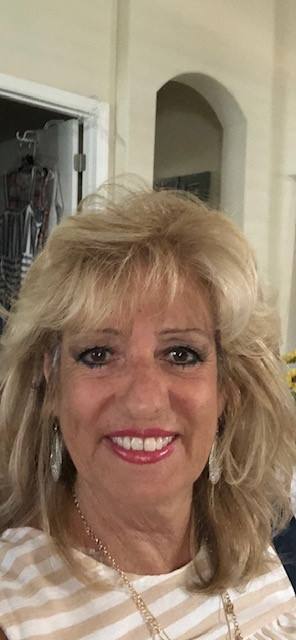Celebrating a remarkable liver transplant journey

By Tia R. Ford
For her one-year anniversary, Luana Q., a Mayo Clinic patient, shares her liver transplant story. Luana was the 4,000th patient to receive a liver transplant since the program began at Mayo Clinic in Florida in 1998. For her transplant, the team used normothermic regional perfusion to preserve the donated organ. This innovative approach uses a machine to pass blood through organs in a donor's body after the heart has irreversibly stopped beating. The procedure also allows for a variety of therapeutic interventions, potentially enhancing the organ's quality before transplantation.
On Oct. 22, 2022, I had my liver transplant at Mayo Clinic in Florida. I live in New Smyrna Beach which is an hour and a half away from Jacksonville. I am so thankful for the donor who gave me the opportunity to continue to live a healthy life after my transplant.
I had liver cancer by the name of hepatocellular carcinoma (HCC). This cancer developed from having hepatitis C in prior years. Even though I went through the medical treatment of riboflavin and interferon for one year, and the treatment was successful (the hepatitis C was no longer detectable), we continued to monitor my bloodwork and liver biopsies.

In 2016, during a routine exam, a lesion was discovered on my liver which turned out to be HCC liver cancer. My doctor made arrangements for me to go to Mayo for further care.
My tumor was larger than acceptable for me to be a transplant candidate; however, the Mayo team did not give up. I was given the opportunity to have Y90 radioembolization, where a special radiation specifically targeted the tumor on my liver to shrink it.
Prayers were answered and the tumor shrank, so I could be placed on the liver transplant list. I had to wait six months for my Model for End-stage Liver Disease (MELD) score to increase, which placed me in a position to be called sooner for a transplant.
On Sept. 23, 2022, I received "the call" to come to Mayo for a possible liver transplant, but, unfortunately, the organ donor's liver was unsuitable for transplant, and the surgery was canceled. That was disappointing, but I am glad my care team thoroughly examined the organ.
Soon after, I was called again on Oct. 22, 2022, and had a successful liver transplant. I was given the best team of doctors and nurses who gave me the most wonderful care. I remained in the hospital for four days and continued my stay at the Gabriel House for another four weeks so I could return to Mayo for follow-up monitoring.
I am so honored to be the 4,000th liver transplant patient and praise Mayo for all the lives they change by successfully caring for each patient and their needs. The teams really care, and I never felt like just a number as that sometimes happens. I truly love the care that I continue to receive.
I feel each day is a special gift, and I truly am thankful to Mayo Clinic and my organ donor. I thank God for his love and mercy for me, and giving me this wonderful gift.
- Luana Q.
Learn more
Learn more about liver cancer and find a liver cancer clinical trial at Mayo Clinic.
Join the Transplants Support Group or the Cancer Support Group on Mayo Clinic Connect, an online community for patients and caregivers.
Also, read these articles:
- "Targeted radiation therapy: Y-90 and liver cancer"
- "Researchers hope to eliminate hepatitis, a common risk factor for liver cancer"
- "Why more liver donors are needed"
- "Treating and preventing liver cancer"
- "‘Liver in a box’ is saving lives with new technology"
A version of this article was originally published on the Mayo Clinic News Network.
Related Posts

Dr. Tanios Bekaii-Saab explains common causes of liver damage, how it can lead to liver cancer and what you can do to prevent it.

Dr. Lionel Kankeu Fonkoua, a Mayo Clinic medical oncologist, discusses liver cancer symptoms, treatment and prevention.

Dr. Maria Linnaus discusses the link between obesity and cancer risk and how bariatric surgery may reduce that risk.
 Facebook
Facebook Messenger
Messenger Twitter
Twitter LinkedIn
LinkedIn Email
Email Print
Print